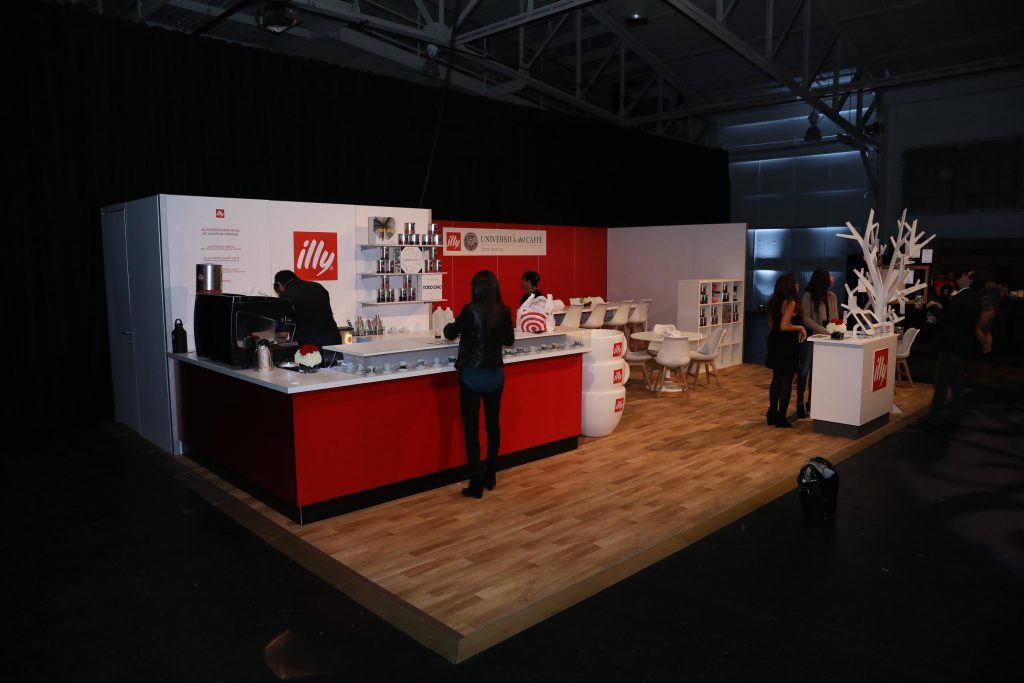Setting objectives and goals is a vital part of the event planning process, and it’s something that shouldn’t be overlooked. Don’t be tempted to skip this important step, or you may find that your event doesn’t provide the value you were hoping for.
Why Are Event Objectives and Goals Important?
Setting event goals and objectives is hugely important of your event strategy because it’s what sets the stage for every decision that follows. It’s important for more practical reasons too. The goals and objectives you set should be designed to:
- Keep you focused during the planning process
- Help you avoid wasting resources
- Ensure every decision you make is for the good of the event
Goals vs. Objectives
The terms “objectives” and “goals” are often used as though they’re interchangeable, but they have different definitions. And it’s useful to know those definitions because it can actually help you set more valuable goals.
Goals are the long-term outcomes you’re working towards. For instance, an event goal might be to sell a sponsorship package to offset the costs of the event.
Objectives are the strategies you implement and the actions you take in pursuit of goals. For the previous goal of event sponsorship, event objectives examples might include things like:
- Researching sponsorship packages
- Developing ideas for your own sponsorship offerings
- Locating potential sponsors
In other words, if a goal is a destination, objectives are the tools you use to get you there.

Event Sponsorship
How to Set Useful Event Goals
The value of an event depends on whether it meets the goals for your event. So it’s important to be thoughtful when deciding what those goals are. For event goals to be useful, you must understand the event’s purpose and how it benefits your organization.
1. Understand the Event
Before you can determine what goals will best serve your event, you must understand the event itself. You need detailed information about what and who the event is for, so you can set goals that meet those purposes. Some questions to consider might include:
- What’s the purpose of the event? How does your organization benefit by holding this event?
- Who’s your audience for the event? What demographics are you hoping to serve?
- Why are these people interested in your event? What kind of content would compel them to attend?
- What are you hoping the audience will gain by attending?
- Who are the key stakeholders for this event? Does this mean key people or departments within your organization, or the organization itself? Will there be event sponsors?
- How will stakeholders benefit from the event?
- What metrics and KPIs will you use to measure the success of the event?
Be thorough when considering what questions are important, and answer those questions with as much detail as possible. The clearer your picture of the event, the better able you’ll be to set clear event goals.
2. Check Out the Event Landscape
Along with understanding your organization’s relationship to the event, it’s also important to understand how what you’re planning will fit within the larger event landscape. This helps you build an event that meets audience expectations and sets your event apart from your competitors.
- What does the event world look like within your organization’s industry? What organizations are holding events? What kinds of events are they hosting?
- What other events are happening during your timeframe? Are there any that might force you to compete for your audience?
- What kinds of sponsors might be available? What does an average sponsorship package look like in your industry?
- Who might be available as a speaker or presenter? Who are the popular speakers, and who’s most appropriate for your event? Are you more interested in getting someone from your industry, or are you looking for a celebrity type?
- What event topics and themes are you considering? What topics and themes are popular in the industry, and how are other organizations using them to achieve their event goals? What topics and themes align with your organization’s values and with your audience’s interests?
- What kinds of event format are you considering? What makes the most sense in terms of your event purpose and the audience you want to attract—e.g., a meeting or training session, a conference, or summit?
Pro tip: Don’t forget to consider virtual versus live and hybrid events and how each might best serve your audience and your organization.
3. Set Your Goals
After completing the previous steps, you should have the information you need to determine what event goals will best suit your event. Once you actually start to figure out your event goals, it’s helpful to use the SMART framework to make sure your goals are both feasible and useful.
The SMART framework means setting goals that are:
- Specific
- Measurable
- Achievable
- Relevant
- Time-bound
Use These Event Goals Examples to Get Started
The SMART framework is a useful way to define your event goals, because it lets you create goals that are actionable. This means the goals themselves define how you’ll reach your goals and measure them, giving you a clear path to setting event objectives that will let you achieve those goals.
Here are some event goals examples that take advantage of the SMART framework. Use these to give you an idea of how to develop your own event goals.
Specific Goals
The purpose of setting specific event goals is that specificity helps you narrow down your parameters for success. Without specificity, you have no event KPIs to measure,and no way of determining what value your event has.
Goal: Convert attendees into customers.
Specific Goal: Get 20% of attendees into the sales cycle.
Specificity is hugely important, not just for its own sake but also because it informs other aspects of the SMART strategy. A measurable goal has to be specific about what it’s measuring, and how. An achievable goal needs to be specific about what’s being achieved and what qualifies as success. And a time-bound goal needs to designate a specific timeframe in order for that goal to be meaningful.
Measurable Goals
A measurable event goal is one that is defined by quantitative outcomes. It means setting hard figures on what you want from the event.
Goal: Raise event revenue by attracting sponsors.
Measurable Goal: Raise 15% of event revenue via partnerships with event sponsors.
Measurable goals are useful for two reasons:
- They give you something to track in the event planning process and provide concrete aims to focus on. If you’re at 8% sponsorship revenue, you know you need to continue putting some focus there. Once you hit 15%, you know you can put more attention into other event matters.
- They’re useful benchmarks for future events. If you easily cleared 15% at a previous event, you may decide that 20% is a realistic figure for the next one.
Achievable Goals
Goals should be realistic and achievable for them to provide useful insight and direction.
Goal: Get all attendees to use the mobile event app.
Achievable Goal: Achieve a 50% adoption rate for the mobile event app.
It might seem like a better goal would be to get 100%, but is it realistic? And if it’s not, what’s the point? “Reaching for the stars” doesn’t apply when it comes to effective goal-setting, and all-or-nothing goals are largely ineffective. Failing to reach your goals tanks staff morale, and unrealistic goals make it harder for people to take your event seriously.
Instead, do your research, and figure out what levels of sales, attendance, and other metrics are realistic and achievable. Then adjust your goals accordingly. For instance, the average adoption rate for mobile event apps is 48.5%. That means a goal of 50% is realistic, and 60% is a good “stretch” goal.
Relevant Goals
Research is also essential in setting goals that are relevant, meaning they matter to your audience and to event stakeholders. What does your audience want from the event, and what do stakeholders want?
Goal: Give out event swag to attendees.
Relevant Event Goal: Improve brand awareness by 10%.
“Giving out event swag” is a useless goal and not just because it lacks specificity. It also tells you nothing about what the purpose of giving out swag at the event actually is. However, swag is often used to improve brand awareness—so while giving out swag alone isn’t a useful goal, raising brand awareness can be.
This is also a handy demonstration of the difference between event goals and event objectives. Giving out event swag can be a useful way to raise brand awareness, so this is actually an example of an event objective that can help meet that specific goal.
Time-Bound Event Goals
Effective goals have a deadline by which the goal must be met or have a specific timeframe during which the metrics of the goal are measured.
Goal: Sell early-bird event tickets.
Time-Bound Goal: Sell 50% of tickets by the early-bird cutoff date.
SMART goals are associated with a specific timeframe, rather than a vague time “in the future.” This helps make goals more specific and also means anyone who’s working on event objectives relating to the goal has a timeframe to work towards.
Get SMART About Your Event Aims and Objectives
Planning an event is a huge undertaking, and having well-defined goals and objectives is essential for your success. Using the SMART strategy gives you a framework for developing goals that are both meaningful and useful—so you can meet not just your event goals, but your company goals too.









